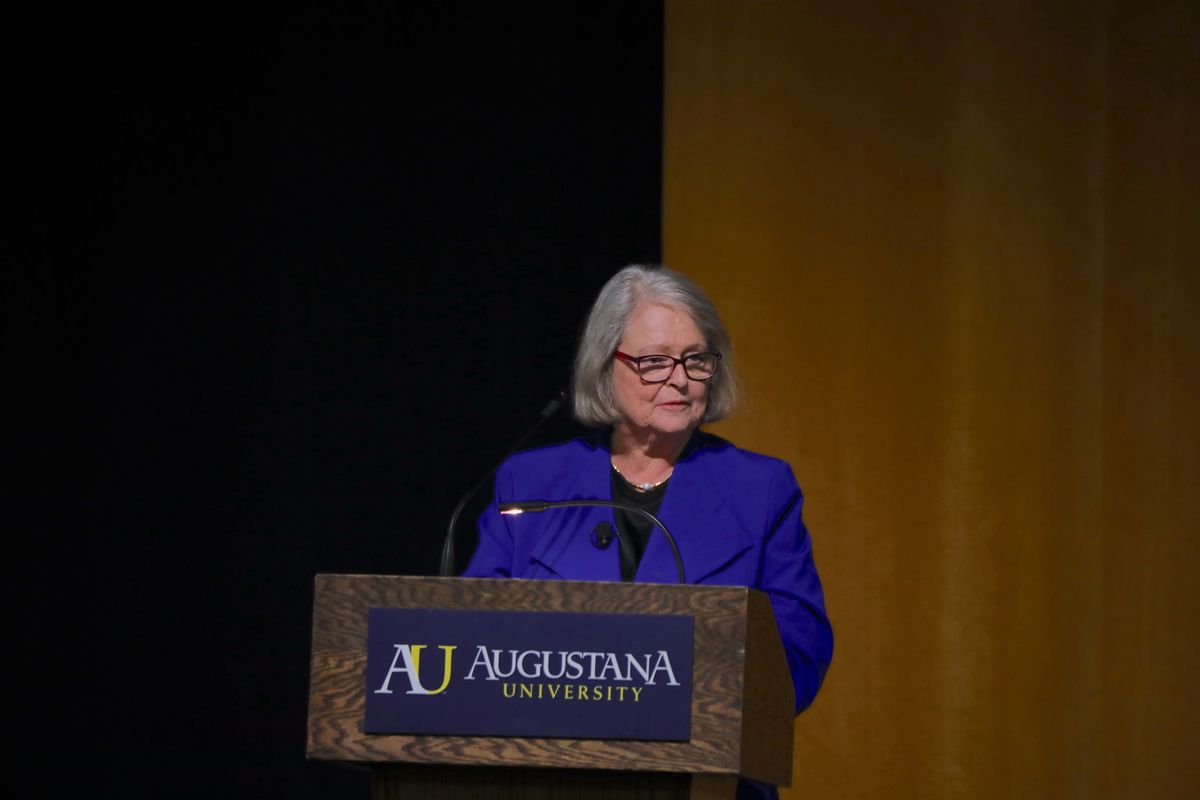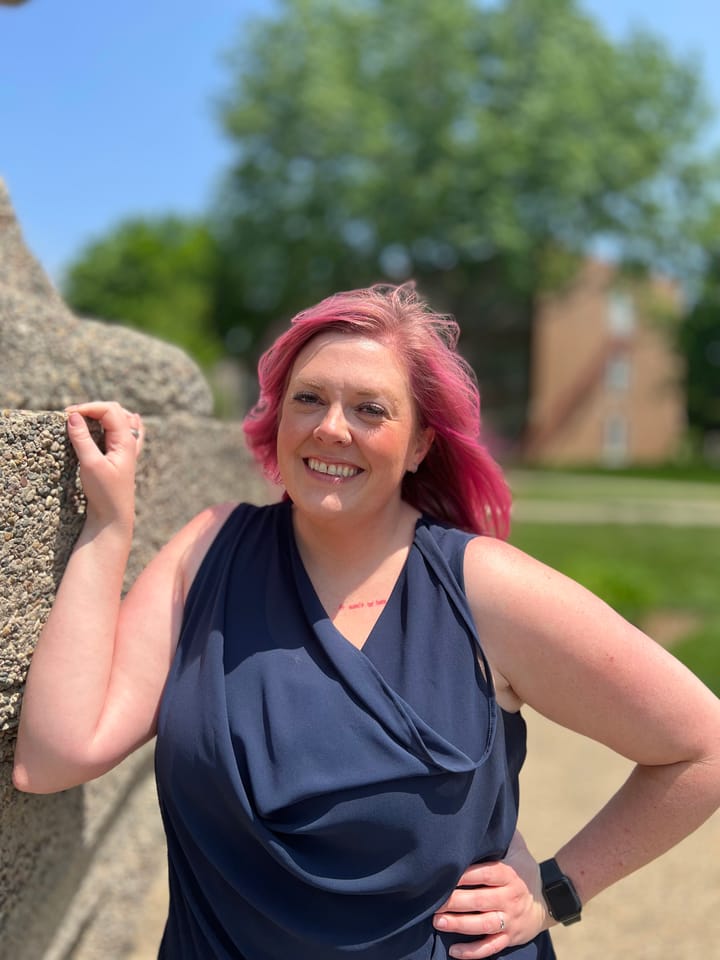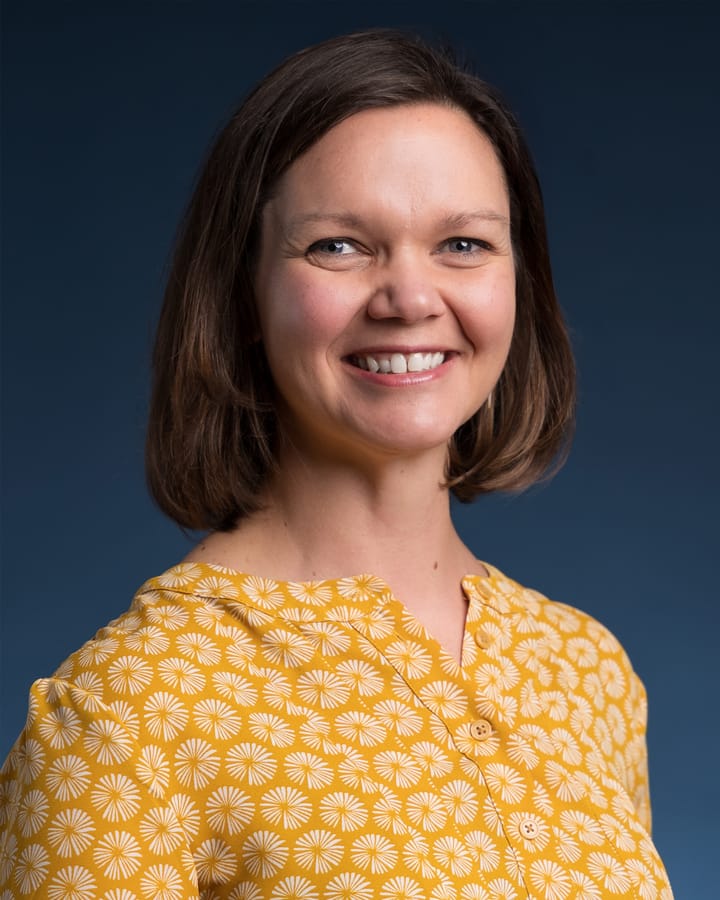Boe Forum speaker encourages sustainability

The former prime minister of Norway emphasized the importance of environmentalism and humanitarianism at the annual Boe Forum on Public Affairs on Tuesday, March 14.
Gro Harlem Brundtland served three terms as Norway’s first female prime minister from 1981 until 1996. She also served as Director General for the World Health Organization from 1998 until 2003, and she is currently a deputy chair of The Elders, an international organization of public figures and activists brought together by Nelson Mandela in 2007.
Harlem Brundtland addressed issues of climate change, the Russia-Ukraine war, the COVID-19 pandemic, feminism and sociological trends to an audience of more than 2,000 students, academics and community members. The Center for Western Studies put on the event.
“What was compelling about [Harlem Brundtland] was the fact that here is someone who, for many years, has been drawing attention to the importance of something that only more recently the world has come to understand,” Harry Thompson, the executive director of the Center for Western Studies, said. “Now every day we can see what climate change is doing.”
Harlem Brundtland’s speech focused on a push for greater sustainability throughout the international community. She advocated for greater development and implementation of electric vehicles, a move away from reliance on fossil fuels and more taxes on carbon emissions. Harlem Brundtland also said the developing world must be uplifted in order to truly make an environmental difference.
“Sustainable energy enables people to move from poverty to prosperity while protecting our air, our water and our land,” Harlem Brundtland said. “It also, in many cases, is essential to improve maternal health, expand business opportunities and to promote education.”
While Harlem Brundtland commended the United States for improving its environmental policy since the election of President Biden, she still advocated for greater taxes on carbon dioxide emissions in the country, citing the “polluter pays” principle, the idea that carbon dioxide producers should cover the costs of managing their own pollution.
Harlem Brundtland said environmentalist forces must also collaborate with industries in order to solve poverty, one of the root issues of pollution.
“You cannot deal with the whole issue of the trends affecting humanity and the planet if you don’t have a holistic world view,” Harlem Brundtland said.
Harlem Brundtland recognized the war in Ukraine as another issue facing sustainability. She said the war has exacerbated reliance on fossil fuels, particularly coal mines; however, she said she believes this increased reliance will result in a positive shift towards more reliable renewable energy sources in the long run.
“Last year, painstakingly, we learned a lesson about being too dependent on fossil fuels and on dependence on peaceful collaboration with a large neighboring country,” Harlem Brundtland said. “But the situation has increased the pace of change towards a greener renewable economy. Renewable energy is gaining ground globally.”
Global interdependence was a central theme in Harlem Brundtland’s discussion of the COVID-19 pandemic as well. Harlem Brundtland criticized international governments’ responses to the pandemic, saying she believed they acted too slowly and neglected world health.
“The spread of a new coronavirus changed our world, and humanity was not well prepared, although these risks had been made very clear,” Harlem Brundtland said.
According to Harlem Brundtland, the pandemic was a factor that worsened the trend of decreasing public trust in governments, science and in humanity.
“The pandemic, economic uncertainty, political polarization, racial discrimination, climate change, wars and inequities have accelerated a generalized erosion of trust in government institutions as well as in science,” Harlem Brundtland said. “This is creating both anxiety and stress, and at the core of many social problems is a profound lack of trust and belonging.”
Trust has been a central element to Brundtland’s career as a world leader. She said gathering a diverse group of individuals with variety in both their areas of expertise and their cultural backgrounds was an important factor in creating various coalitions throughout her life.
“We need experts who have deep knowledge in a narrow field, and we need experts in many narrow views, but more than anything, we need those who are able to sync across sectors,” Harlem Brundtland said.
For students, interconnectedness, human trust and interdisciplinary collaboration were some of the most impactful parts of Harlem Brundtland’s speech.
Sophomore Sammie Kross, an environmental studies major, and junior Janae Becher, a biochemistry and German major and the president of Augie Green, were both elected to host a Q&A with Harlem Brundtland at the end of her speech. Both said Harlem Brundtland’s words on collaboration impacted them most.
“I think my biggest takeaway is just being willing to step out of my comfort zone,” Kross said. “Not in just the realm of sustainability and environmentalism, but in the ideas of asking to collaborate with people you don’t normally work with.”
Becher said she felt Harlem Brundtland’s advice will help her as she pursues a career in the environmental sciences.
“To be a successful leader, you need to be able to recognize that you need people from all of those different disciplines and that you need to utilize them,” Becher said.
Junior Kaja Kleppe Salemonsen, a Spanish and government major, said she was most moved by Harlem Brundtland’s words on the erosion of public trust.
“The things she mentioned about trusting other people was really eye-opening,” Salemonsen said. “It kind of shocked me, just how the trust in the society has decreased so much since she started her political career and how it probably is still. That is something I’m really going to take with me.”
Despite dire environmental and humanitarian circumstances around the world, Harlem Brundtland’s speech remained optimistic. She continuously emphasized the need for a holistic approach to environmentalism to secure the Earth for the good of humanity as a whole.
“The reality is that the world we share, the world we all influence, is a common responsibility,” Harlem Brundtland said.



